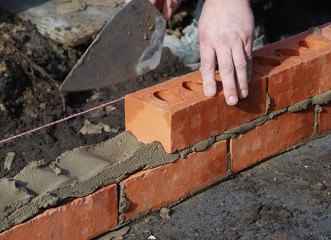Heating and air conditioning systems are important to homes, industrial buildings, hospitals, vehicles, and marine environments. HVAC services are crucial for regulating temperature and humidity inside the building by using air from the outside. When your HVAC system is malfunctioning, contacting a company that offers HVAC services is crucial. Here are a few tips for selecting the right HVAC contractor for your home or business. Read on to learn about the many benefits of hiring an HVAC contractor at https://alltemprefrigerationfl.com/.
HVAC Contractors Are Trained Professionals

Choosing the right HVAC contractor can be tricky. While some HVAC projects may start with good intentions, they often result in problems or ineffective results. HVAC contractors have extensive knowledge and years of experience, which can ensure proper installation or repair. Here are some of the things that an HVAC contractor should know about their job. Before hiring an HVAC contractor, determine what services you need. A reliable company will have certifications and licenses, and you can ask for recommendations from previous customers.
A licensed HVAC contractor must be a licensed mechanical contractor in their state. This license is required for projects that exceed $50,000. They must also be licensed by the State Licensing Board. To obtain this license, applicants must have four years of HVAC experience or a combination of years of education and experience. Additionally, they must carry business liability insurance and post a $5,000 surety bond. HVAC contractors should have these licenses to practice.
The educational requirements for an HVAC contractor are diverse. A high school diploma is the minimum education requirement, but you may be able to earn more through vocational training or an associate’s degree. However, in most states, it is essential to be licensed to practice HVAC installation and repair in the state in which you reside. Alternatively, you can find a journeyman HVAC contractor through an application process. If you decide to become a journeyman, the apprenticeship may not be paid, but the employer will pay you if you prove your worth during the trial period.
They Are Licensed
There are a few ways to ensure that the HVAC contractor you hire is licensed. Most states require at least a $20,000 bond. Additionally, some states require HVAC contractors to carry a certain amount of insurance. If you have any concerns, you can contact your local business bureau to find out which contractors have the right insurance. Also, be sure that you understand the difference between a license bond and a project-by-project bond.
The certification process typically consists of an exam. HVAC contractors must pass an exam that covers technical skills and installation, as well as business law and licensing requirements. Candidates must also have a certain number of years of warm heating experience and be fluent in English. The examinations that are given to HVAC contractors are called ICC exams. After passing an exam, they can legally practice as HVAC technicians and work for themselves or with employers. A license is valid for two years and may need to be renewed every two years.
Before installing an HVAC system, HVAC services will check the condition of the site to ensure the proper installation. They will also check the heating and cooling settings and inspect filters. This will ensure that the system is working properly and that indoor air quality is safe. A licensed professional will not hesitate to show you proof of their qualifications. These are a few tips to help you choose the right HVAC contractor for your needs. You can also use the internet to research HVAC companies in your area.
They Are Insured
When choosing an HVAC contractor, consider whether they are covered by professional liability insurance. This type of insurance covers the contractor in case of a lawsuit for negligence or fraud. In addition, it covers the cost of replacing equipment, as well as medical expenses incurred by an injured customer. The insurance coverage also protects the contractor’s property. It can cover the cost of replacement in the event of a fire, theft, or another incident. However, commercial general liability insurance is a good choice regardless of whether your HVAC services are primarily for residential use.
In addition to protecting your equipment, HVAC business insurance protects your business investment and your workers. It protects your vehicles, tools, premises, and even initial layout. In addition, it protects you from lawsuits and claims based on negligence or professional mistakes. If you are a sole proprietor of an HVAC company, the insurance will also protect your employees in the event of an accident. For more information on what you need to know about HVAC insurance, read on!
When choosing HVAC insurance, you need to consider the cost of the coverage. The cost will depend on the number of employees you have and the type of work you do. The rate will depend on the number of employees you have and the amount of payroll you have. You should be aware that workers’ compensation policies vary by state and are generally priced based on payroll. In general, commercial property insurance for an HVAC company costs anywhere from $1,267 to $4,199 per year.
They Are Bonded
To protect their customers, HVAC services must purchase a surety bond. In most cases, this bond protects the customer in the case of the contractor not performing the work or not paying their employees. It can also cover any damages and repairs due to substandard work. Many consumers will not hire an HVAC contractor without this bond. In addition to bonding, HVAC contractors must carry liability insurance. This insurance covers the homeowner or business owner in the event of property damage or injuries that arise during work.
If you’re shopping around for an HVAC contractor, make sure to ask for a signed bond. While a licensed HVAC company may be acceptable, being bonded shows a long-term commitment to the customer. The labor warranty is owned by the contractor, so if they go out of business, their work will be rendered worthless. The bonded contractor will also have a guarantee of quality workmanship. In addition, it protects the consumer against unexpected costs.
HVAC contractors must be licensed and bonded to conduct business in your state. In addition, they must carry the appropriate insurance and be bonded to work in the country. As a result, they can offer you peace of mind when you hire a bonded HVAC contractor. Furthermore, a bonded HVAC contractor is insured in case of damages, which can cost you more money. It’s worth it to hire a bonded HVAC contractor.
They Provide Consultation
If you’re not sure where to start with your HVAC system maintenance, consider hiring an HVAC consultant. These professionals can analyze your existing setup and recommend ancillary HVAC services that will boost your comfort. HVAC consultants will provide you with a comprehensive report that highlights all of your HVAC system’s issues. Consultations are beneficial for both parties, as they provide a wealth of information about the HVAC system. Here are the main areas of concern and how to deal with them.
An HVAC system is a complex piece of machinery with many components and regulations. It also comes with many different configurations, which can be confusing if you’re not an expert in this area. An HVAC consulting engineer will help you choose the best system for your specific needs and ensure optimal performance, energy efficiency, and cost. In addition, HVAC consulting engineers will help you choose a system that meets the latest standards and codes while ensuring a comfortable indoor environment.
When it comes to HVAC maintenance, HVAC contractors offer consultation for improving indoor air quality. These services can include installing whole-house dehumidifiers, humidifiers, germicidal light systems, and thermostats. Additionally, they offer duct cleaning services. You can rely on these experts for routine maintenance and emergency repairs. They’ll also offer you peace of mind and a professional air quality report. By combining HVAC maintenance and consultation, you can make your home comfortable and energy-efficient.
They Are Available 24 Hours A Day
While heating and cooling systems are generally trouble-free, they can break down when you need them most. A heat outage can turn into a disaster as pipes can freeze. Not only does this cause major damage to your home, but it can also put your family’s health and safety at risk. The best thing to do is call an HVAC company that offers emergency services. You can be sure that someone will be there to provide the emergency service you need.
They Are Affordable
While repairing a heating or cooling system may seem costly, there are many ways to find HVAC services that are affordable. HVAC technicians charge hourly rates, typically between $85 and $150, plus a minimum fee. Their services can range from cleaning outdoor coils with specialty cleaners to installing drain tables. They may also measure electrical current and inspect the furnace’s flue pipe and burner. However, the rates may not be affordable for you.
Many HVAC contractors offer free estimates. Call them up and request an estimate. If you’re not sure which option is best, you can ask them for a written quotation. This will help you decide on the most suitable HVAC system for your home or business. Once you’re satisfied with the estimates, contact the HVAC contractor to proceed with the installation. It’s that easy! This article will give you some tips to make HVAC services affordable.


